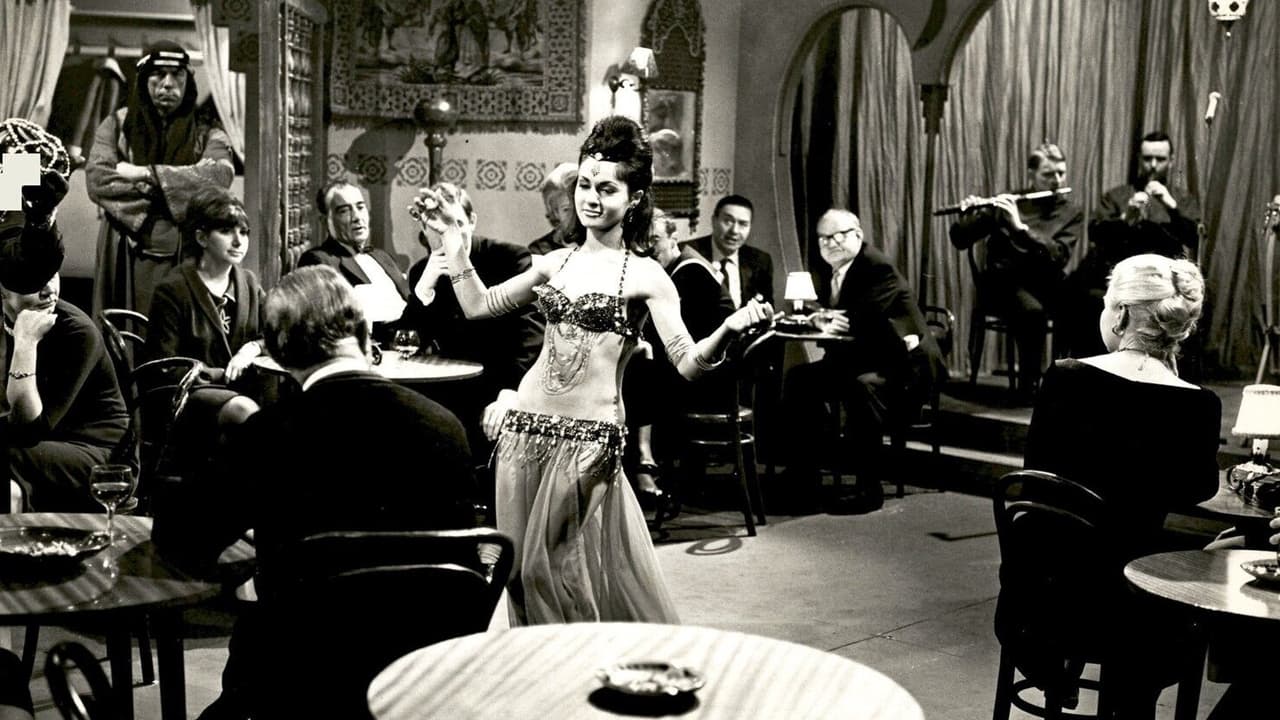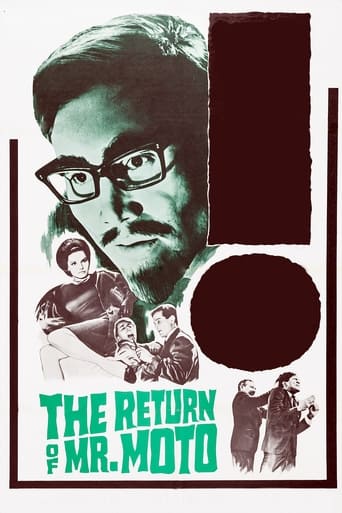Scanialara
You won't be disappointed!
Interesteg
What makes it different from others?
Diagonaldi
Very well executed
Livestonth
I am only giving this movie a 1 for the great cast, though I can't imagine what any of them were thinking. This movie was horrible
gavin6942
Mr. Moto (Henry Silva) goes undercover to find out who has been blowing up oil wells and trying to gain total control of all the oil leases from a petroleum-rich Middle Eastern country.The previous series of eight films was in the late 1930s and starred Peter Lorre, but Moto faded away for a number of reasons. The biggest probably being WWII. Was the character gone forever? Nope. Finally in the 1960s, director Ernest Morris brought the character back after his long absence. It was a one-off, but a decent one. Silva's Moto is very subtle compared to Lorre's in his speech and appearance, but it is still effective. Why a new series did not spring from this is unclear.
el Cambion
It's called The Return of Mr. Moto (1965) Henry Silva. "Last full length feature of Ian Fleming". Perhaps, but it's not our Mr. Moto (Peter Lorre). Filmed at Shepperton Studios, which might give you a hint to the boredom ahead.In this one Mr. Moto works for Interpol, investigating an oil mogul murder. The setting is international, ala Bond. Very dry. Tedious. Moto (actually calls himself "Mr. Tugura" so there is no reason for the movie title) goes into disguise eventually as a Japanese who's doing a Charlie Chan impression.It's not that it's cheesy. It's just boring. No camp. No charm. As a "Mystery/Thriller" it wasn't mysterious or thrilling. And I actually like Henry Silva… usually.
John Seal
Once the viewer recovers from the shock that star Henry Silva plays Mr. Moto totally straight--no awful accent or taped eyelids here--the truth emerges: The Return of Mr. Moto is a boring quota quickie. Shot on the cheap in black and white by producer Robert Lippert, the only concessions to art are a few nice set ups by cinematographer Basil Emmott, who had been shooting British films since the early 1920s. The story involves oil concessions in the Mid-East (some things never change!) but the film looks and plays like one of the many West German Edgar Wallace krimis of the period, with lots of people skulking around shadowy corners. The only thing missing is Klaus Kinski.
t-bones
The only film I've walked out from.

